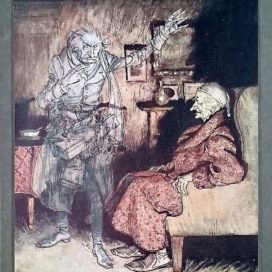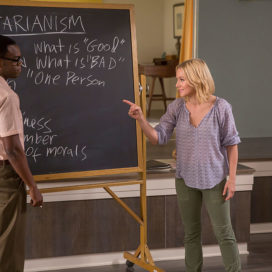News
-
 When less (frequent) is more
When less (frequent) is moreAccountancy professor F. Asís Martínez-Jerez and his co-researchers explain their pilot project, revealing that the best performance is achieved when detailed feedback is delivered less frequently, in a piece for Strategic Finance.
Strategic Finance -
 On the Money
On the MoneyResearchers build the first analytical model to study selling virtual video game currency. Business analytics professor Hong Guo, grew up playing video games in China and has studied emerging IT trends ranging from net neutrality to mobile platforms since earning her doctoral degree. Her latest research is the first to build an analytical model to understand the trend sweeping the video game world of selling virtual currency.
Brendan O'Shaughnessy (ND '93) -
 Contract Killers
Contract KillersDetailed contracts can provide incentives for opportunistic behavior. In a rapidly changing business landscape, are incomplete contracts the answer? Accountancy professor F. Asís Martínez-Jerez believes there is a counterintuitive solution.
Michael Hardy -
 Building an ethical career
Building an ethical careerAnn Tenbrunsel's research into the ethical mirage, which is the tendency to overestimate the virtuousness of our future selves, was used in a piece by Harvard Business Review about being intentionally ethical in your career.
Harvard Business Review -
 Scrooge, Marley and the business of mankind
Scrooge, Marley and the business of mankindA piece in ND Magazine by the Deloitte Center for Ethical Leadership's Brett Beasley makes the argument that the story of Scrooge is applicable in today's business world and should be a reminder of mortality that motivates executives toward greater social responsibility. The article is based on research by management professor Craig Crossland, which brought a scientific approach to Scrooge-like scenarios in modern corporate management.
ND Magazine - Brett Beasley -
 Air travel reduces local investment bias, benefits investors and firms
Air travel reduces local investment bias, benefits investors and firmsEasy access to air travel has not only flattened the world, it also has flattened the bias toward investing locally, according to new research from finance professor Zhi Da and his co-researchers.
Shannon Roddel -
 Yes, ethics can be taught.
Yes, ethics can be taught.A new study by accountancy professor Zachary Kowaleski provides an evidence-based answer to a question that is both a timely—and timeless—question, as illustrated by NBC’s hit TV show The Good Place.
Brett Beasley -
 Love, lies and money
Love, lies and moneyA study by marketing professor Emily Garbinsky and her co-researchers introduces, defines and measures financial infidelity.
Shannon Roddel -
 Can ethics be taught? Study offers first large-sample evidence of the effect of ethics training on financial sector behavior
Can ethics be taught? Study offers first large-sample evidence of the effect of ethics training on financial sector behaviorCan ethics be taught? New research by Zach Kowaleski and his co-researchers suggests yes, offering the first large-sample study on how rules and ethics training affects behavior and employment decisions in the financial sector.
Shannon Roddel -
 Liberal or conservative? CEOs’ political leanings skew firms’ logic in structuring initial pay packages, study shows
Liberal or conservative? CEOs’ political leanings skew firms’ logic in structuring initial pay packages, study showsA study by management professor Timothy Hubbard and co-reserachers Scott Graffin and Eric Lee from the University of Georgia and Dane Christensen from the University of Oregon found new CEO compensation mirrors their existing risk preferences.
Shannon Roddel
